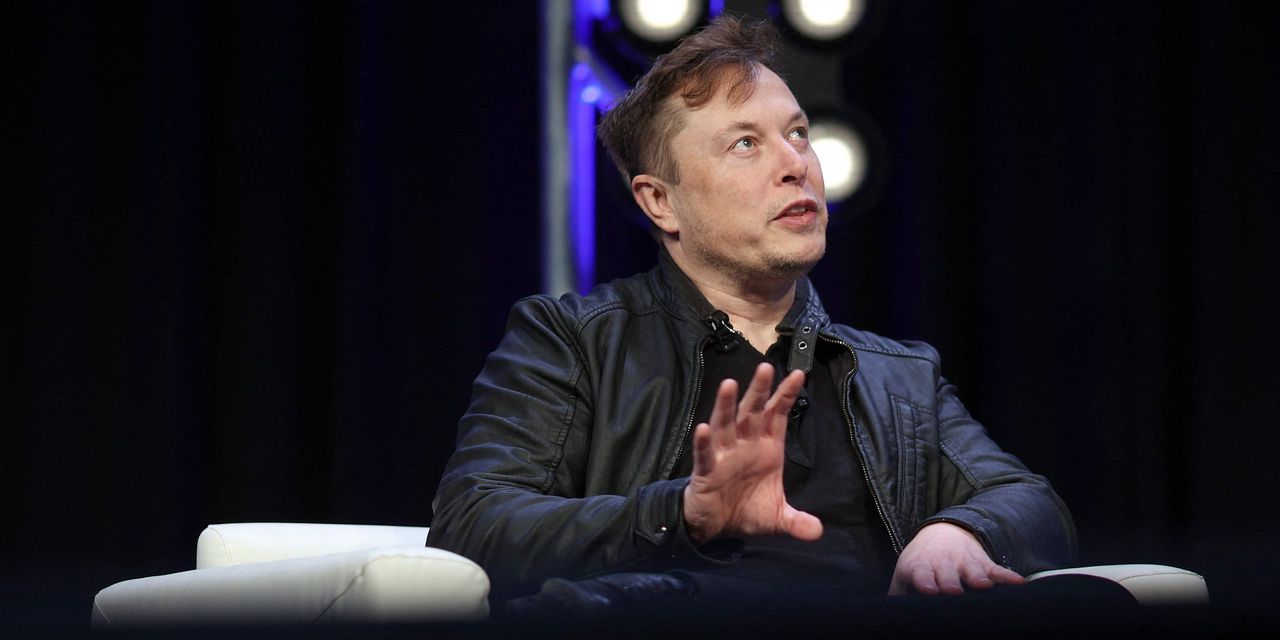

Chief Executive
asked a federal judge on Tuesday to scrap a settlement he reached with securities regulators in 2018 that required some of his tweets be preapproved, a condition that has fomented an ongoing conflict with the government over whether he and
have followed the rule.
In a motion filed in Manhattan federal court, Mr. Musk’s lawyers argued that the
oversight policy has become unworkable, while the Securities and Exchange Commission has abused the deal to make “round after round of demands for voluminous, costly document productions, with no signs of abatement.”
In a separate filing, Mr. Musk also disputed the SEC’s earlier claims that he defrauded investors in 2018 when he tweeted that he had “funding secured” to take Tesla private. The Tesla CEO said he felt pressured to settle the SEC’s civil lawsuit at the time and added: “I never lied to shareholders. I would never lie to shareholders. I entered the consent decree for the survival of Tesla, for the sake of its shareholders.”
An SEC spokesman declined to comment.
Mr. Musk’s request follows the launch of a new SEC investigation that relates to trading by himself and his brother,
Kimbal Musk.
The probe began last year after the Tesla chief polled Twitter users asking whether he should unload 10% of his stake in the electric-car maker and pledging to abide by the vote’s results. Kimbal Musk sold shares of Tesla valued at roughly $108 million one day before Mr. Musk’s poll tweet.
Records filed with the court Tuesday indicate that five days before launching the Twitter poll, Mr. Musk spoke with the acting head of Tesla’s legal department about pre-announcing his intent to sell company stock. That conversation also happened four days before Kimbal Musk sold Tesla stock.
Kimbal Musk didn’t immediately respond to a request for comment.
Should Elon Musk’s settlement with securities regulators be scrapped? Why or why not? Join the conversation below.
In the earlier case—the subject of Mr. Musk’s motion on Tuesday—the SEC alleged that Mr. Musk misled investors in 2018 with tweets that weren’t truthful. The regulator’s lawsuit eventually led to an unusual agreement that Tesla lawyers would preclear certain of the CEO’s tweets and other public statements.
The two sides have never agreed on how the policy should be enforced. The SEC told Tesla in 2019 and 2020 that Mr. Musk tweeted about company business without preclearance. The company’s and Mr. Musk’s lawyers disputed that the statements were covered by the agreement, which covers only the dissemination of financial, production and management information.
Mr. Musk’s and Tesla’s 2018 settlement also required them to each pay $20 million and for Mr. Musk to step down as chairman. He has continued to antagonize the SEC, recently writing on Twitter: “I didn’t start the fight, but I will finish it.”
Mr. Musk and Tesla now argue that the SEC’s attempts to enforce the preclearance rule violates Mr. Musk’s free-speech rights.
Donna Nagy, a law professor at Indiana University, said it would be difficult for Mr. Musk and Tesla to convince a court to scuttle the earlier settlement. A federal appeals court in Manhattan recently rejected another SEC defendant’s request to invalidate his settlement based on his claim that it blocks him from denying the allegations and therefore curbs his speech rights.
“It is exceedingly difficult to convince a federal court to terminate a consent decree,” Ms. Nagy said. “The showing required is very high and there is very recent precedent in an analogous area.”
Alex Spiro,
an attorney for Mr. Musk and Tesla, on Tuesday asked the court to quash part of a November subpoena directed at Mr. Musk that sought information about whether his poll tweets had been precleared.
Mr. Spiro argued the SEC can’t further investigate Mr. Musk’s tweets without going through U.S. Judge
Alison Nathan
in Manhattan, who is responsible for enforcing the agreement. The SEC has said it has a valid basis to investigate the tweets, citing rules that require companies to have policies that control how they disseminate information to shareholders.
The November subpoena also sought documents related to Mr. Musk’s sale of Tesla stock or options, Mr. Spiro wrote. The Tesla chief executive sold more than $16 billion worth of Tesla stock in November and December, after launching the poll.
“The SEC’s vendetta against Mr. Musk should be put to a stop,” Mr. Spiro wrote.
More coverage, selected by the editors.
Write to Dave Michaels at dave.michaels@wsj.com and Rebecca Elliott at rebecca.elliott@wsj.com
Copyright ©2022 Dow Jones & Company, Inc. All Rights Reserved. 87990cbe856818d5eddac44c7b1cdeb8
Appeared in the March 9, 2022, print edition as ‘Musk Asks Court To End SEC Pact.’
24World Media does not take any responsibility of the information you see on this page. The content this page contains is from independent third-party content provider. If you have any concerns regarding the content, please free to write us here: contact@24worldmedia.com

Common Mistakes When Using Athletic Field Tarps

High-Performance Diesel Truck Upgrades You Should Consider

Warehouse Optimization Tips To Improve Performance

Fire Hazards in Daily Life: The Most Common Ignition Sources

Yellowstone’s Wolves: A Debate Over Their Role in the Park’s Ecosystem

Earth Day 2024: A Look at 3 Places Adapting Quickly to Fight Climate Change

Millions of Girls in Africa Will Miss HPV Shots After Merck Production Problem

This Lava Tube in Saudi Arabia Has Been a Human Refuge for 7,000 Years

Four Wild Ways to Save the Koala (That Just Might Work)

National Academy Asks Court to Strip Sackler Name From Endowment

Ways Industrial Copper Helps Energy Production

The Ins and Out of Industrial Conveyor Belts